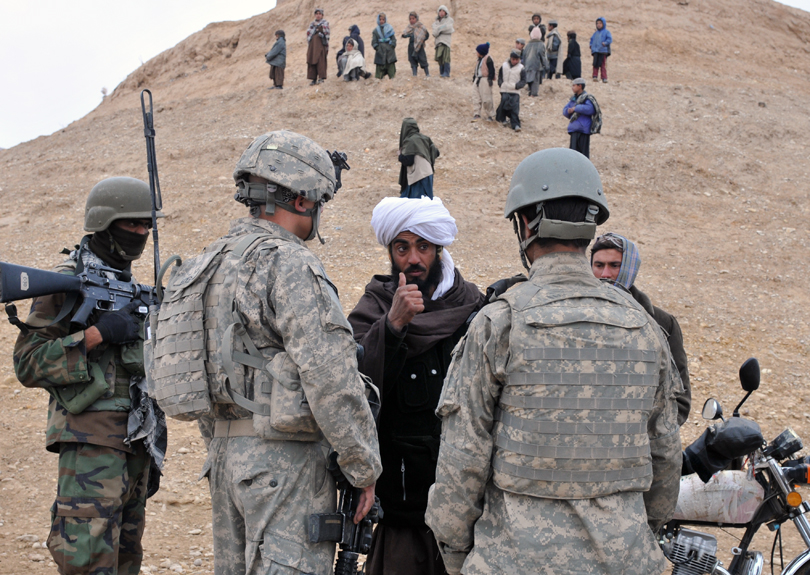Over the past several weeks, the United States evacuated more than 120,000 people from Afghanistan, officially ending its two decades-long military presence there on Aug. 31. Only about half of those airlifted out of the country were Afghans. That means that a “majority” of those Afghans who had worked for the U.S. military and applied for Special Immigrant Visas (SIVs) were left behind, according to a senior U.S. State Department official quoted by NBC News.
Many of these Afghans served as interpreters for U.S. forces. When I was deployed to Afghanistan in 2010 and 2011, I taught an advanced English class for interpreters. I recorded the interview below with one of them, who has since become a friend. This Afghan man (who prefers not to use his real name, given the danger to his family) worked for the American, Dutch, and Australian militaries during their presence in the country. (The Dutch forces left Afghanistan in 2011, and the last of the Australian troops in 2013.) Fortunately, my friend was able to relocate to Australia after the Taliban seized control. But many of his fellow interpreters remain in Afghanistan and fear reprisals.
In this 2011 interview, my friend talks about the danger and distrust that interpreters regularly experienced on their patrols, and their worries about what would happen to them once foreign troops left. For their troubles, interpreters like him were paid 600 U.S. dollars a month—with the additional expectation that they would be taken care of in the event that the Taliban regained control of the country and sought to punish those who had assisted their adversaries.
Continue reading ‘Life Will Be Bitter for Us’: An Interview with an Afghan InterpreterAnna Chan Anna Chan is a writer based in Florida.
- Follow us on Twitter: @inthefray
- Comment on stories or like us on Facebook
- Subscribe to our free email newsletter
- Send us your writing, photography, or artwork
- Republish our Creative Commons-licensed content


